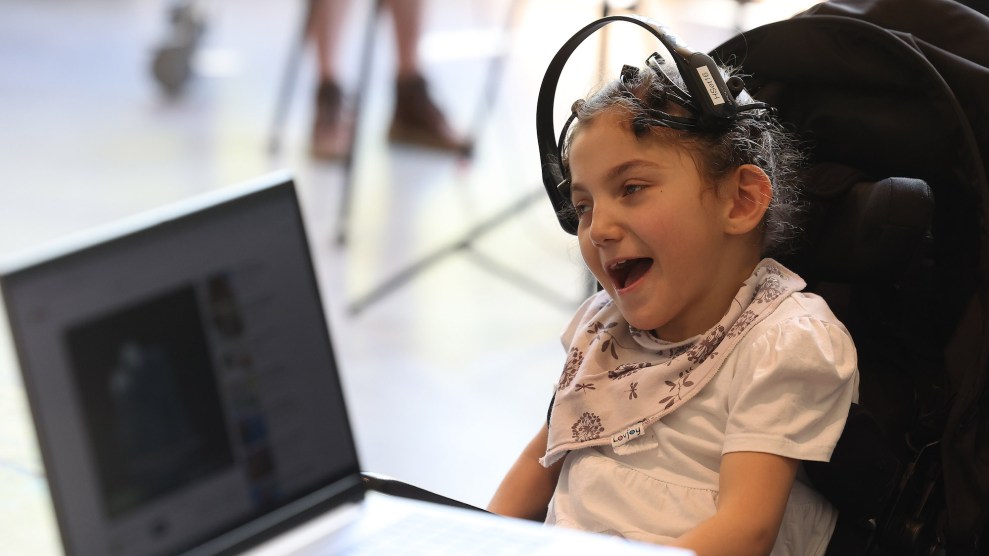
A child using a device that helps them paint, play music and drive a remote control car, among other things. Steve Rusell/Toronto Star/Getty
Last Friday, the federal court for Florida’s Southern District issued a groundbreaking ruling: that the state had violated the Americans with Disabilities Act by unnecessarily institutionalizing children with complex health needs, placing them in nursing homes instead of providing community health services.
As an outcome of the ruling, which follows a two-week trial in May, Florida will have to develop plans to help children institutionalized due to lack of community resources return home. The case has been a decade in the works, as South Florida NPR affiliate WUSF noted in its coverage.
“Unjustified institutionalization of individuals with disabilities is unacceptable, especially given the advances in technology and in the provision of home-based care,” US District Judge Donald Middlebrooks wrote in his decision.
The right to remain in one’s community has been a core tenet of the disability rights and independent living movements. The ADA, which turns 33 this month, was signed in 1990 after decades of activism by disabled people; it protects disabled people in many areas of public life, including healthcare. The Supreme Court’s 1999 landmark decision in Olmstead v. L.C. also guarantees disabled people’s right to live in their communities.
As of the time of the ruling, around 140 children in Florida’s Medicaid programs are living in nursing homes across three counties, and around 1,800 children were at risk of being similarly institutionalized. Middlebrooks’ ruling ordered the state to improve care coordination and fund more at-home nursing for children.
“This important ruling will help Florida families of disabled children keep and care for their children at home by requiring increased access to medical support and service,” said US Attorney Markenzy Lapointe, in a Justice Department press release.
Disabled people may be pressured into nursing homes for several reasons, one being the cost of health care while living independently. This is a problem faced by disabled people across the United States: An October class-action lawsuit, for example, claimed that the state of Massachusetts allowed thousands of disabled adults to be denied “basic rights” including “complete deprivation of face-to-face contact with the world outside” while institutionalized in nursing homes, even though some were able to live independently.
Nursing homes have been criticized for health and safety issues across Florida, which has had the most Covid-related deaths in nursing homes of any state in the country and expects sweeping effects of climate change to harm disabled and aging residents in largely underprepared facilities.
















